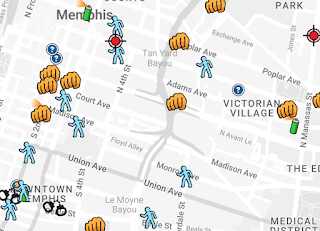SpotCrime Weekly Reads: Violent crime, AI tech, transparency

Fired cops, police advisory committee, police community relations, traffic stops clogging courts, police discipline records, National Crime Victimization Survey, stranger danger and violent crime, reducing gun crime, stolen guns, rap music used as evidence to convict, AI tool in criminal cases faces legal challenges, AI cameras, drones respond to 911 calls, police transparency in Pittsburgh, police data transparency, dashboards for criminal justice, and more... POLICE CONDUCT The Police Department for Fired Cops (Illinois Answers Project) New police advisory committee formed after changes from state law (Fox13Memphis) Using basketball to improve police-community relations and lower gun violence (The Philadelphia Inquirer) In Memphis, Minor Traffic Stops are Clogging Courts and Draining Resources (Vera.org) Yonkers PD must hand over police discipline records to civil liberties group, judge rules (AOL) CRIME RATE National Crime Victimization Survey: Prevalenc...


